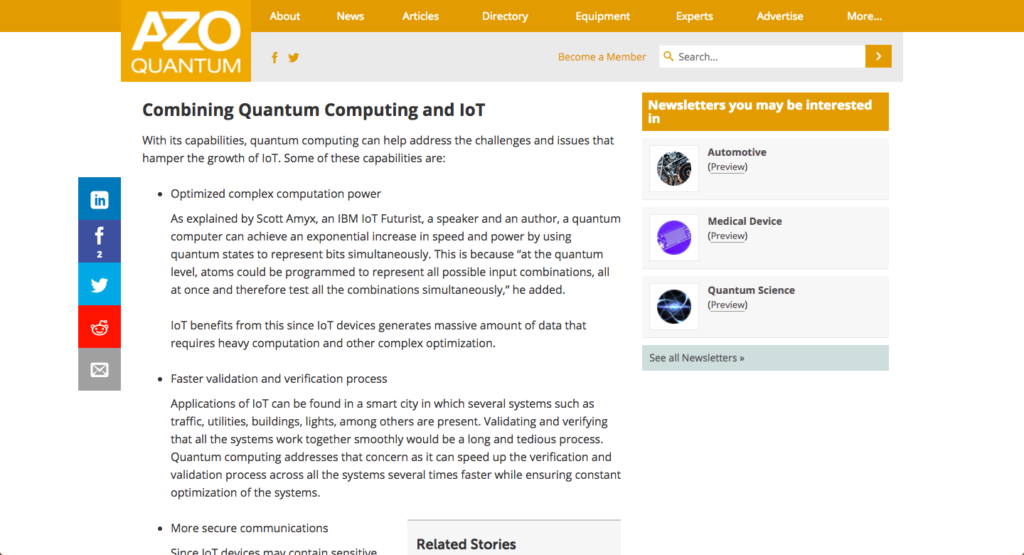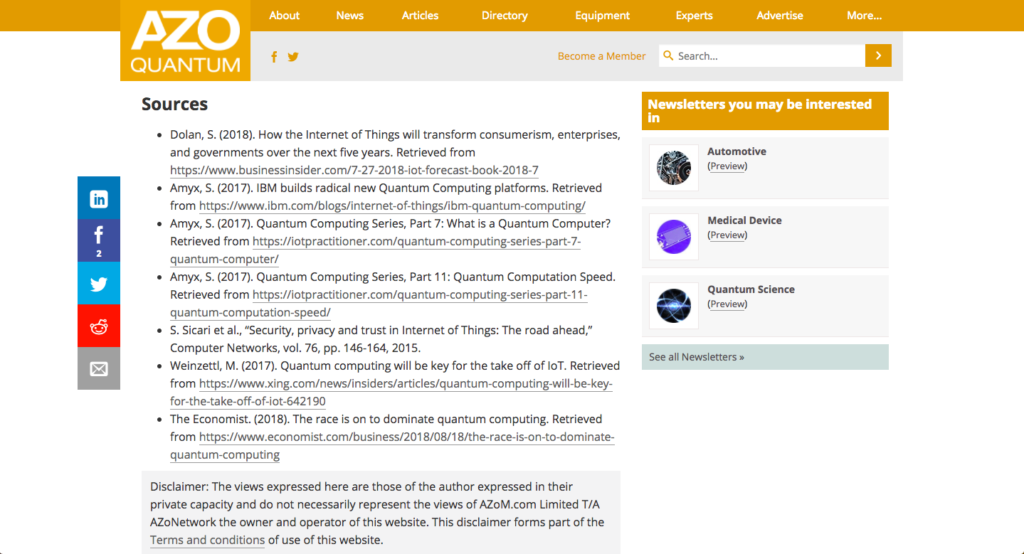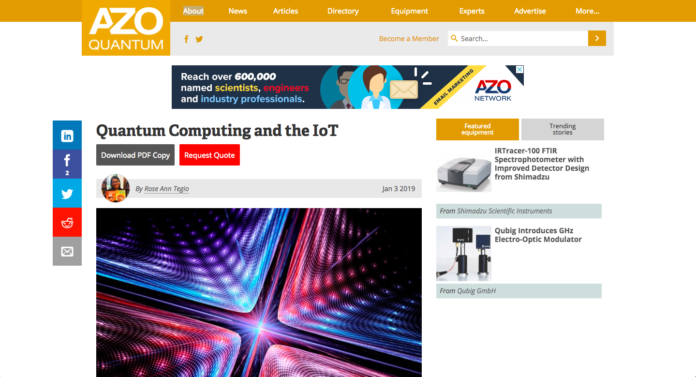

Combining Quantum Computing and IoT
With its capabilities, quantum computing can help address the challenges and issues that hamper the growth of IoT. Some of these capabilities are:
- Optimized complex computation power
As explained by Scott Amyx, an IBM IoT Futurist, a speaker and an author, a quantum computer can achieve an exponential increase in speed and power by using quantum states to represent bits simultaneously. This is because “at the quantum level, atoms could be programmed to represent all possible input combinations, all at once and therefore test all the combinations simultaneously,” he added.
IoT benefits from this since IoT devices generates massive amount of data that requires heavy computation and other complex optimization.
- Faster validation and verification process
Applications of IoT can be found in a smart city in which several systems such as traffic, utilities, buildings, lights, among others are present. Validating and verifying that all the systems work together smoothly would be a long and tedious process. Quantum computing addresses that concern as it can speed up the verification and validation process across all the systems several times faster while ensuring constant optimization of the systems.
- More secure communications
Since IoT devices may contain sensitive information in which handling must comply with the rights and needs of users, they should be secured. Confidentiality, integrity and authentication must be guaranteed. However, security is threatened as “traditional security countermeasures and privacy enforcement cannot be directly applied to IoT technologies due to their limited computing power; moreover the high number of interconnected devices arises scalability issues” as stressed in the study made by S. Sicari et. al.
Using principles of quantum mechanics, a more secured communication is possible through quantum cryptography which uses algorithms that require more computing power than traditional computers. The complexity serves as defense against cyberattacks.


















